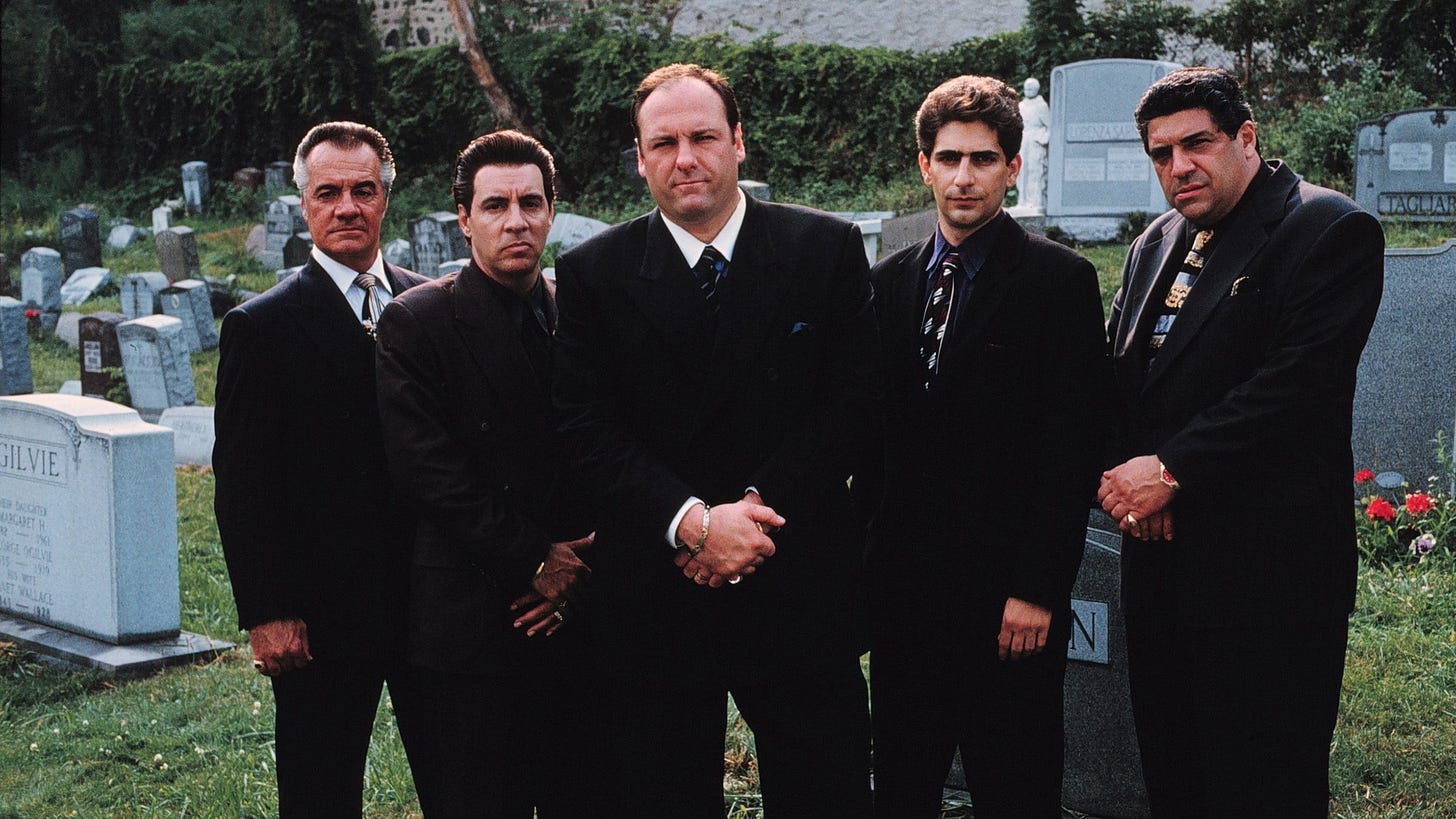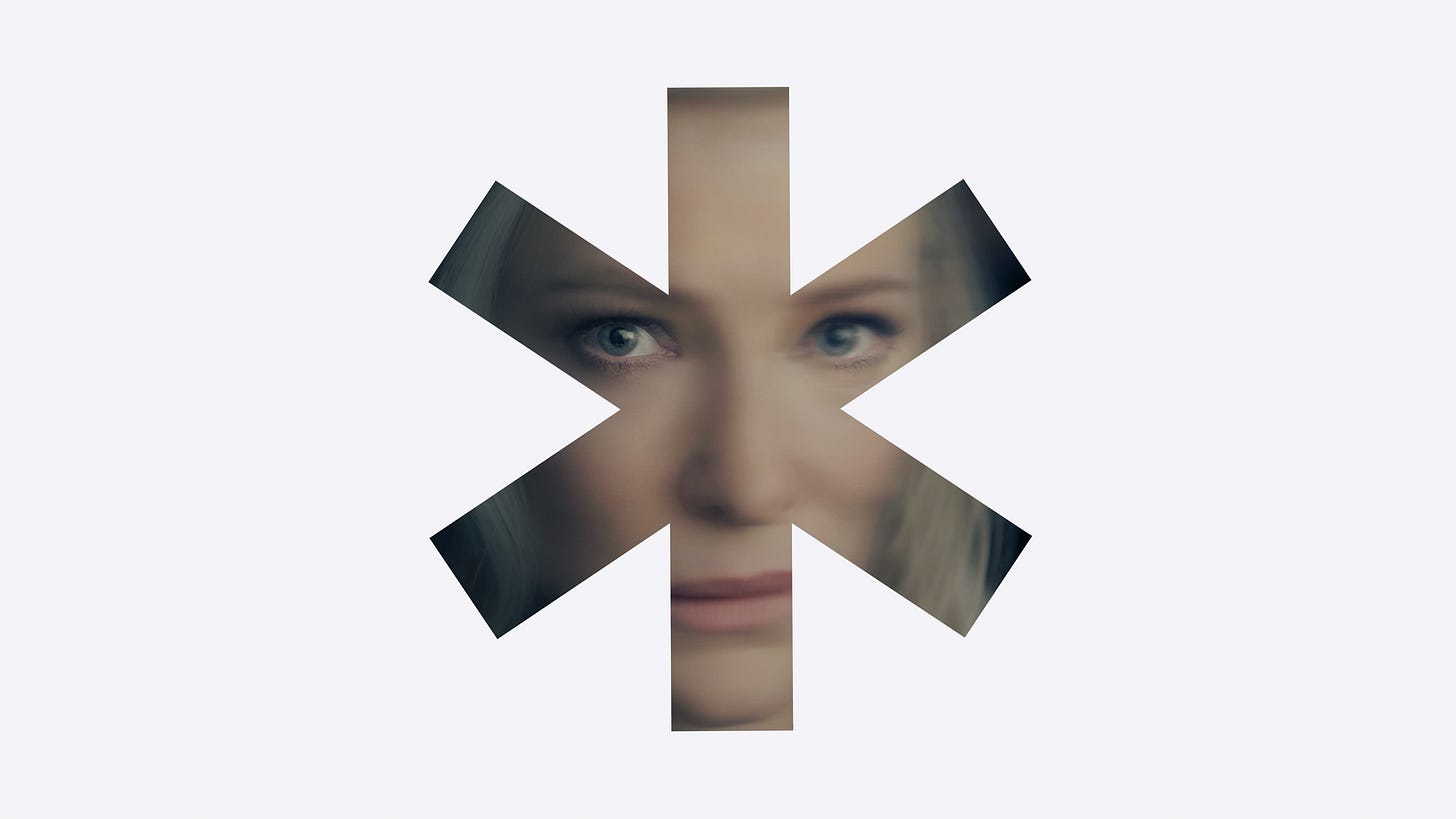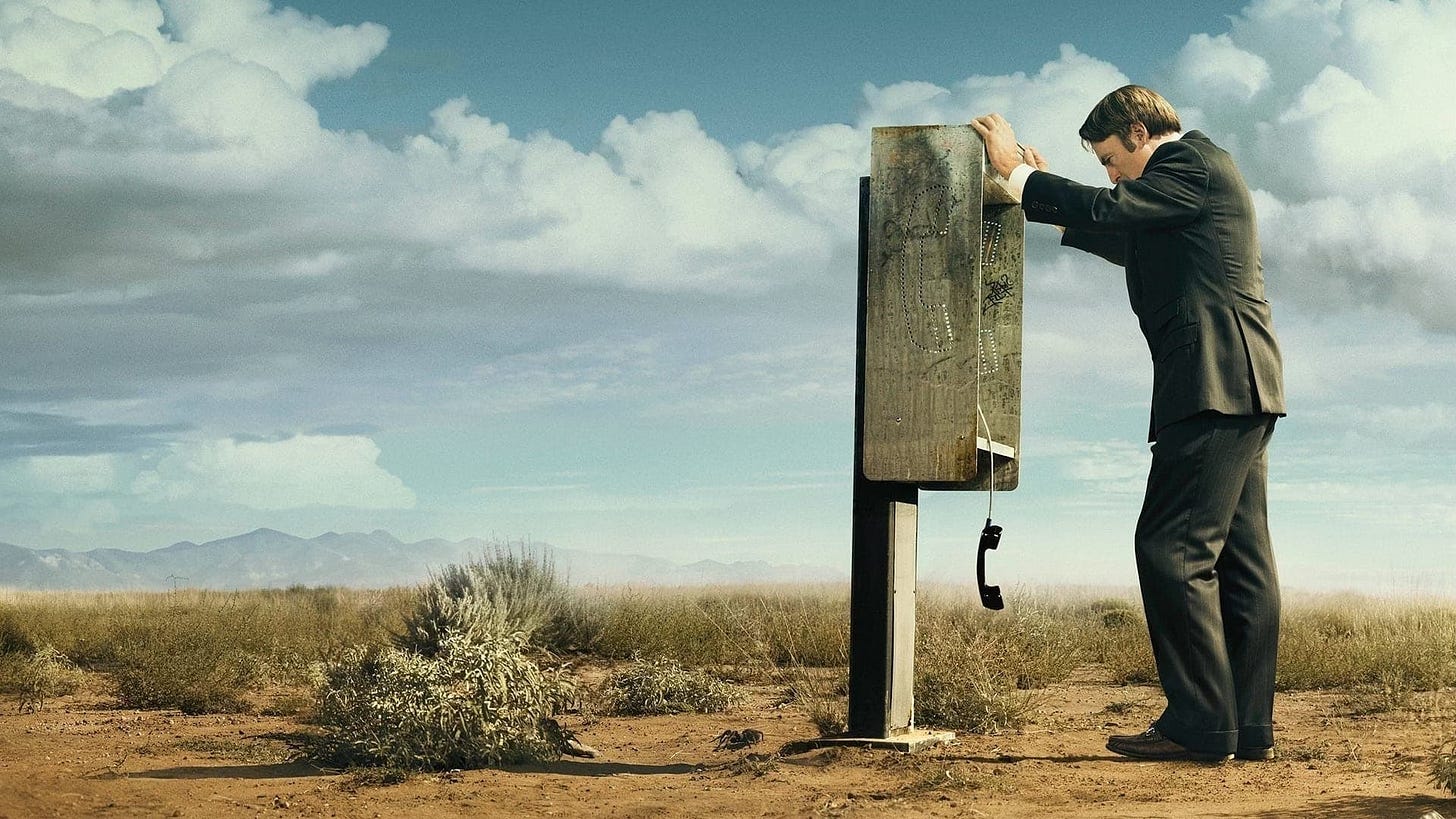Welcome to the 209 new subscribers who joined since my last post. Turns out you all are thirsty for slightly salty missives against social media film commentary. Who knew. This piece is a companion of sorts, digging into the ill-fated convergence of movie & TV storytelling... And yes, our old friend Bresson makes an appearance. 
Quentin Tarantino was doing the rounds on social media the other day telling Joe Rogan why he prefers movies to TV:
The message is clear: movies are better than TV because they are built around endings. TV shows meander and wheel spin instead of building to a proper resolution.
He’s not the first director to make this argument. “Television has a beginning, a middle, a middle, a middle, a middle, until the whole thing dies of exhaustion,” said Joel Coen. “It’s beaten to death and then you find a way of ending it.”
I much prefer movies to TV (obviously). But this criticism feels oddly dated. It imagines a world where all TV shows are 50-hour epics like Yellowstone or Game of Thrones, sprawling endlessly into the abyss until they eventually… stop.
But this conveniently ignores what’s actually happening to TV. Over the past few years, thanks partly to fierce competition among cash-flush streamers, television has embraced the conventions of movie storytelling via the prestige limited series.
Just last year, Park Chan-Wook directed Robert Downey Jr. in The Sympathizer, Alfonso Cuarón helmed Cate Blanchett in Disclaimer, Jake Gyllenhaal led a glossy remake of Presumed Innocent, and Andrew Scott starred in a luscious black-and-white re-telling of The Talented Mr Ripley (notably, both the last two were previously movies).
Here’s the key thing about all these series. Not only did they steal the stars of cinema, but they embraced its defining feature. They ended.
The line between cinema and TV has never been blurrier. Beef, Russian Doll, The Undoing, Watchmen, Mare of Easttown: All told a single, self-contained story over one season.
If Tarantino’s right, then this should be a good thing… shouldn’t it?

Well… no.
I think Tarantino’s criticism of TV has it backwards. He’s blaming it for not being movie-like enough. But that’s what we have movies for!
The great shows of TV’s golden age, like The Wire, Mad Men, and The Sopranos (followed by Better Call Saul and Succession), thrived precisely because they leaned into the episodic structure and long-form storytelling unique to TV.
At the risk of beating you over the head with the musings of a long-dead Frenchman, let’s return to what I wrote about in December - Robert Bresson’s theory that the best art maximises the opportunities of its own medium:
“The truth” of cinema, Bresson argues, “cannot be the truth of theatre, not the truth of the novel, nor the truth of painting.” To be truly powerful, truly alive, cinema must play to its own strengths: “It is in its pure form that an art hits hard.”
If we accept this premise, “pure” television should embrace its distinctive qualities.
So what distinguishes it from movies?
Well, first, TV is episodic. Its atomic unit is the episode: a self-contained story contributing to a larger whole. Think of Breaking Bad’s Ozymandias or Succession’s ‘Connor’s Wedding’, perfect hours of TV, complete yet devastating in context.
Second, TV has time on its side. The baggy quality Tarantino and Coen complain about is a feature, not a bug. It provides space for long-form, incremental, messy character development. That sprawling middle is where the magic happens. The ill-fated Italy trip in The Sopranos. Kim’s mid-show moral descent in Better Call Saul.
Prestige miniseries abandon these strengths, stretching movie-shaped stories over multiple arbitrarily divided segments. Each episode feels unsatisfying, incomplete, dependent on some distant resolution.1
Television storytelling shouldn’t be cinematic.2 It should be televisual. Reaching for a ‘cinematic’ structure exposes TV as what we movie fans have long accused it of being: a beta version of the alpha. It’s like trying to make films more theatrical or photography more painterly - a fundamental misunderstanding of what makes each medium powerful.
Here’s the real irony: just as television chases cinema’s perfectly contained narratives, movies are becoming increasingly… TV like.
The power of cinema lies in its self-containment, that perfect beginning-middle-end structure that, to paraphrase director James Gray, plunges through your chest like a locomotive.
But as everything becomes franchised and legacy sequels proliferate, films are reduced to exactly what TV is abandoning: episodic components of a larger narrative.
If the most accursed question in TV is “how can we pad this out to a full season,” its cinematic equivalent has become “will there be a sequel?”

TV becoming movies… movies becoming TV… what’s going on?
Bresson wrote about the “extermination” that occurs when one art form imitates another. In the Great Streaming Era, extermination takes another name: Contentisation.3
In my last piece, I wrote about wallpaperism - how social media reduces cinema to pretty screenshots, stripping away context and meaning. Well, contentisation is its structural cousin; the flattening of medium-specific storytelling into consumable units, a homogenous blob of undifferentiated stuff sitting together on the same platform. “Who cares what shape the story is, it’s all content.”
On the plus side, some of our best directors seem to have reached a similar conclusion. This year, Park Chan-Wook returns to movies. As for Cuarón’s next project, his ambitions are music to a cinephile’s ears:
“Maybe something very short… like 90 minutes.”
If you enjoyed reading and would like to support my work, please consider buying me a ‘coffee…’
If you didn’t enjoy it - what are you still doing here!
I should clarify, in case it’s not already clear, that I’m referring to story structure here, rather than production quality/craft etc.




Maybe movies should stop using the same crap-ass digital photography that flattens every image and makes your show/movie look just like the last show/movie.
I want images, not just people sitting in a room talking.
Fromtheyardtothearthouse.substack.com
Seconded! My favorite TV shows wouldn't work as films, and vice versa.
It's not a competition -- I love both, just like I enjoy both parmesan and hot sauce ¯\_(ツ)_/¯